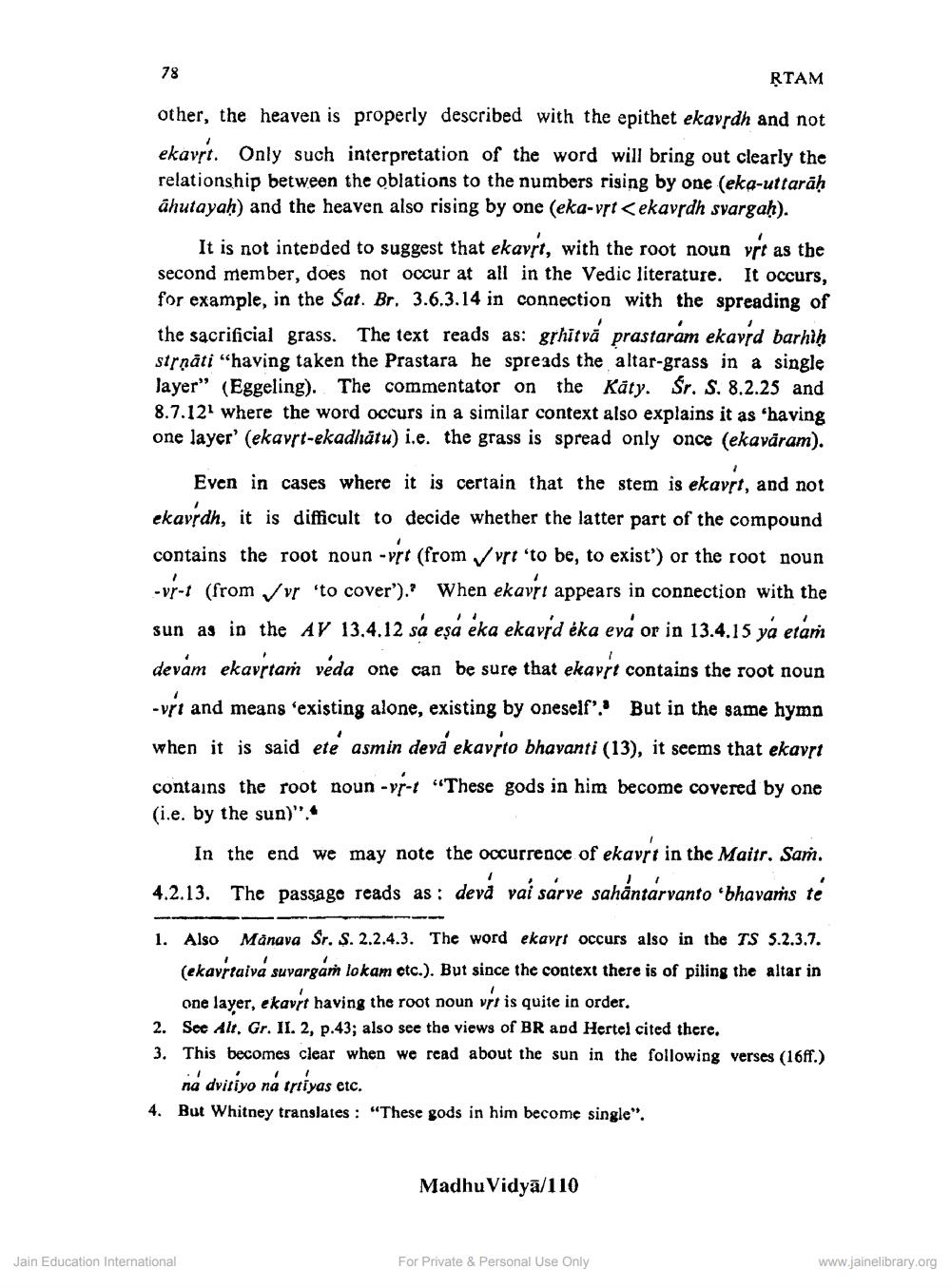________________
78
RTAM
other, the heaven is properly described with the epithet ekavṛdh and not ekavṛt. Only such interpretation of the word will bring out clearly the relationship between the oblations to the numbers rising by one (eka-uttarāḥ ahutayah) and the heaven also rising by one (eka-vrt <ekavrdh svargah).
It is not intended to suggest that ekavrt, with the root noun vrt as the second member, does not occur at all in the Vedic literature. It occurs, for example, in the Sat. Br. 3.6.3.14 in connection with the spreading of the sacrificial grass. The text reads as: grhitvá prastarám ekavṛd barhib straäti "having taken the Prastara he spreads the altar-grass in a single layer" (Eggeling). The commentator on the Käty. Śr. S. 8.2.25 and 8.7.12 where the word occurs in a similar context also explains it as 'having one layer' (ekavrt-ekadhätu) i.e. the grass is spread only once (ekavāram).
Even in cases where it is certain that the stem is ekavṛt, and not ekavṛdh, it is difficult to decide whether the latter part of the compound contains the root noun -vr (from /vrt to be, to exist") or the root noun -vr-t (from 'to cover"). When ekart appears in connection with the sun as in the AV 13.4.12 sa eşa eka ekavid éka eva or in 13.4.15 ya etam devam ekavṛtam véda one can be sure that ekavrt contains the root noun -vt and means 'existing alone, existing by oneself'. But in the same hymn when it is said ete asmin deva ekavṛto bhavanti (13), it seems that ekavrt contains the root noun -v- "These gods in him become covered by one (i.e. by the sun)".
In the end we may note 4.2.13. The passage reads as:
the occurrence of ekavrt in the Maitr. Sam. dev devá vai sarve sahántárvanto 'bhavams té
1. Also Manava Sr. S. 2.2.4.3. The word ekavṛt occurs also in the TS 5.2.3.7. (ekavŕtalva suvargám lokam etc.). But since the context there is of piling the altar in
one layer, ekav't having the root noun vt is quite in order.
2. See Alt, Gr. II. 2, p.43; also see the views of BR and Hertel cited there.
3. This becomes clear when we read about the sun in the following verses (16ff.) na dvitiyo na triyas etc.
4. But Whitney translates: "These gods in him become single".
Jain Education International
Madhu Vidya/110
For Private & Personal Use Only
www.jainelibrary.org




